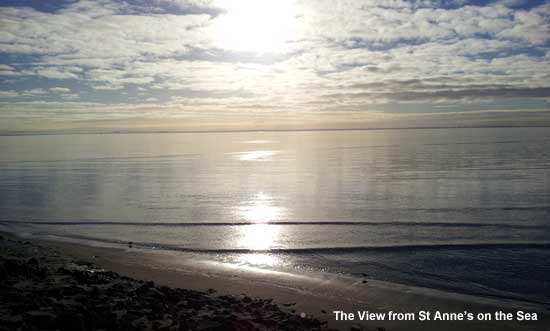
Lancashire

The Red Rose County.
Introduction
Lancashire in north west England.
Preston is the administrative centre of Lancashire as the County Council is located there. Lancaster is the county town.
Today Lancashire has modern industries and probably one of the biggest motorway networks in the UK as well as quick and modern rail links direct to the biggest cities in the UK.
The county has distinct areas which are the flat regions of the Fylde Coast and West Lancashire plain, the central north south corridor through Wigan, Preston, Lancaster and the hill region of East Lancashire.
Lancashire is often thought of as an industrial area yet it has large expanses of agriculture, especially the West Lancashire Plain market gardens, Fylde and central corridor dairy and sheep, the hill area in the east for sheep with cattle in the valleys.
The Ribble and Lune Valleys create some very lush and attractive hill scenery. Especially round the Trough of Bowland. While Morecambe Bay and the Ribble Estuary have massive sand areas that attract birdlife and offer seafood.

Manmade development of the seafront between Lytham and St Annes, Blackpool and Fleetwood enables pleasant walking and leisure activity to suit all tastes except probably the most delicate.

Lancashire as known generally today is a lot smaller than it was before the re-organisation of 1974 when it included Liverpool and Manchester and part of the Lake District.
County Palatine
In it's earliest period it was an isolated area and good for hunting. The king, Henry III, gave it to his son, Edmund, in 1267 following his defeat of the rebel Barons. In 1351 the King Edward III honoured Henry 4th Earl of Lancaster by making him the 1st Duke of Lancaster as thanks for service in France. He also made Lancaster a Duchy or County Palatine where Henry could rule by his own laws in the kings name. It would also act as a buffer to the Scots. The County Palatine stretches to the historic borders of Lancashire including Manchester and Liverpool.
In 1362 John of Gaunt became the 2nd Duke of Lancaster. Henry Bollingbroke became Henry IV in 1399. He took over the title creating a Duchy to be kept separate from Crown Lands and ruled it directly. So the monarch is to this day the Duke of Lancaster.
During the debate for the Succession of the Crown Bill in January 2013, the MP for Wyre and Preston North, Ben Wallace spoke about the rights of succession related to the Duchy of Lancaster - click here to read it.
Industrial Revolution
A sort of under-developed rural state of affairs continued till the 18th Century when a number of key inventions in the cotton industry were made that enabled the factory system to develop.
Suddenly from an undeveloped place it became one of the wealthiest regions on Earth. The population exploded and workers from all over Britain came to join the boom. Not that the people would have thought themselves wealthy as they lived in terrible conditions and worked all hours. On the other hand they lived in brick buildings, eventually with running water and sewers and able to take a few days at Blackpool every year. Lets not confuse the rough and tough people of that age or their sensibilities with the general population of today.
2009
In 2009 Lancashire officially comprises the sub-regions of West Lancashire and East Lancashire. These are divided into Districts. West Lancashire has Lancaster, Wyre, Fylde, Preston, South Ribble, Chorley and West Lancashire. East Lancashire has Ribble Valley, Pendle, Burnley, Hyndburn, Rossendale. The unitary councils of Blackpool and Blackburn with Darwen are no longer in Lancashire administratively.
The administrative county population in 2007 was 1.167m. This excludes Blackpool and Blackburn with Darwen which are 283,000. The population of the Palatine of Lancashire, which includes Manchester and Liverpool being approx 5.8m and the North West Region, including Cumbria and Cheshire is 6.8m.
Regional Accents
The people of Lancashire speak with a northern accent that is broadly recognisable as being from the region but has variations in each locality. I had relatives from Blackburn and Blackpool and I could tell them apart. Some, for example in Chorley have pronounced features, such as calling it, and words like it, Charley. In Wigan people may travel on a buz. The accents in East Lancashire towards Manchester have interesting vowel sounds. If you go into the Lowry Museum and listen to the film of Lowry talking. As you get towards Liverpool the accent takes on more of that city's sound. It's an interesting range and fascinating just listening. BBC Radio Lancashire is good for hearing local accents.
Lancashire Day
27th November has been adopted as Lancashire Day. This is the day when in 1295 Lancashire sent its first MP's to parliament.